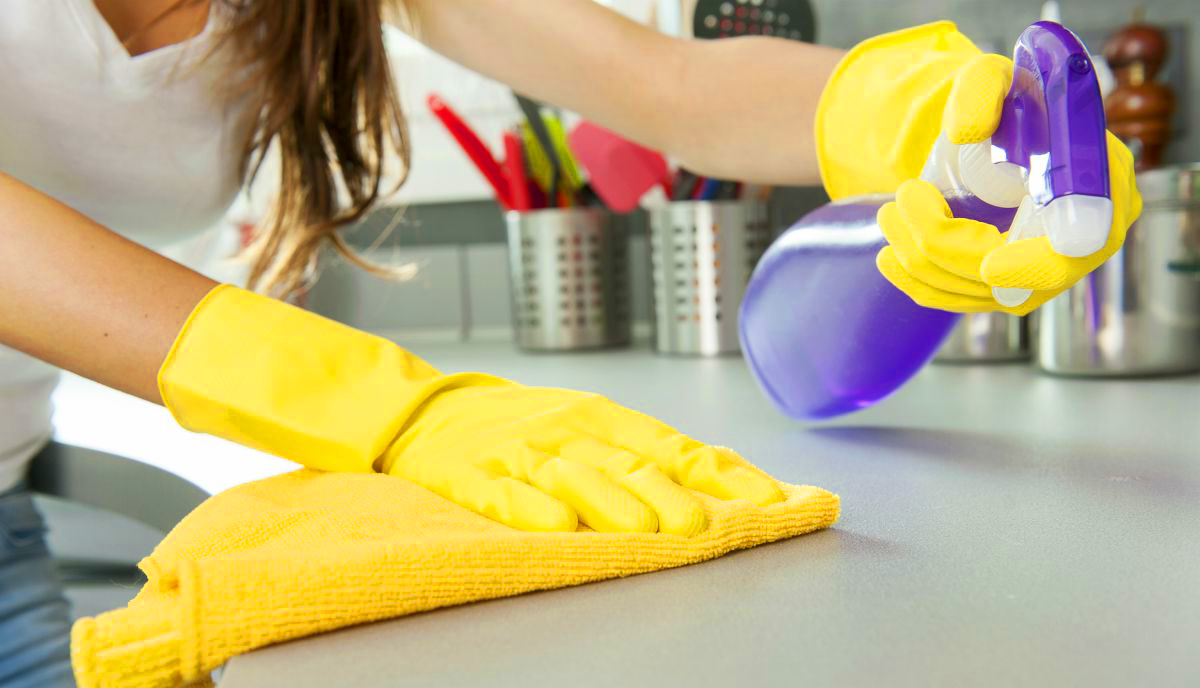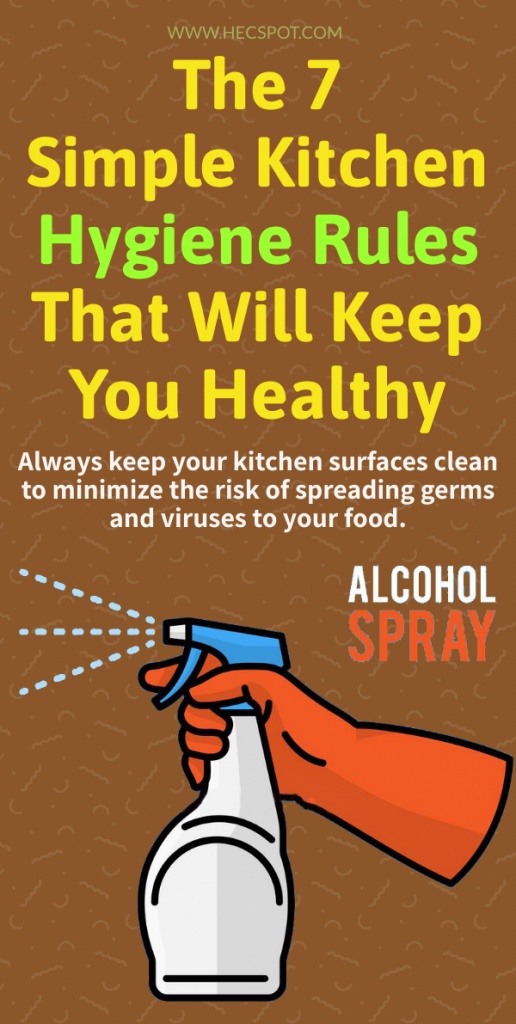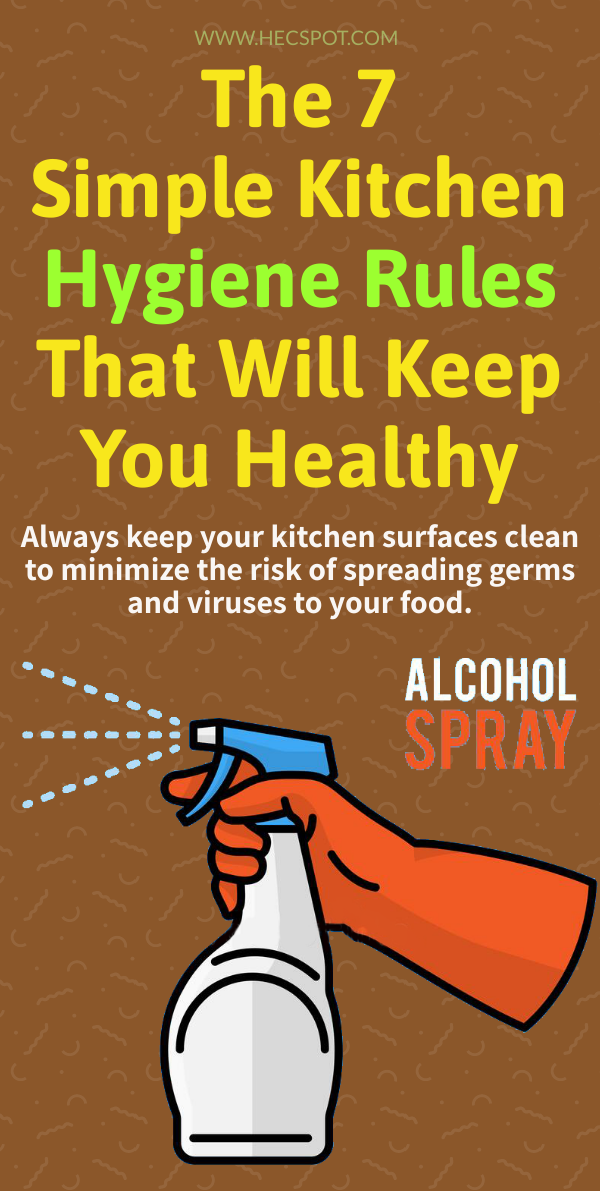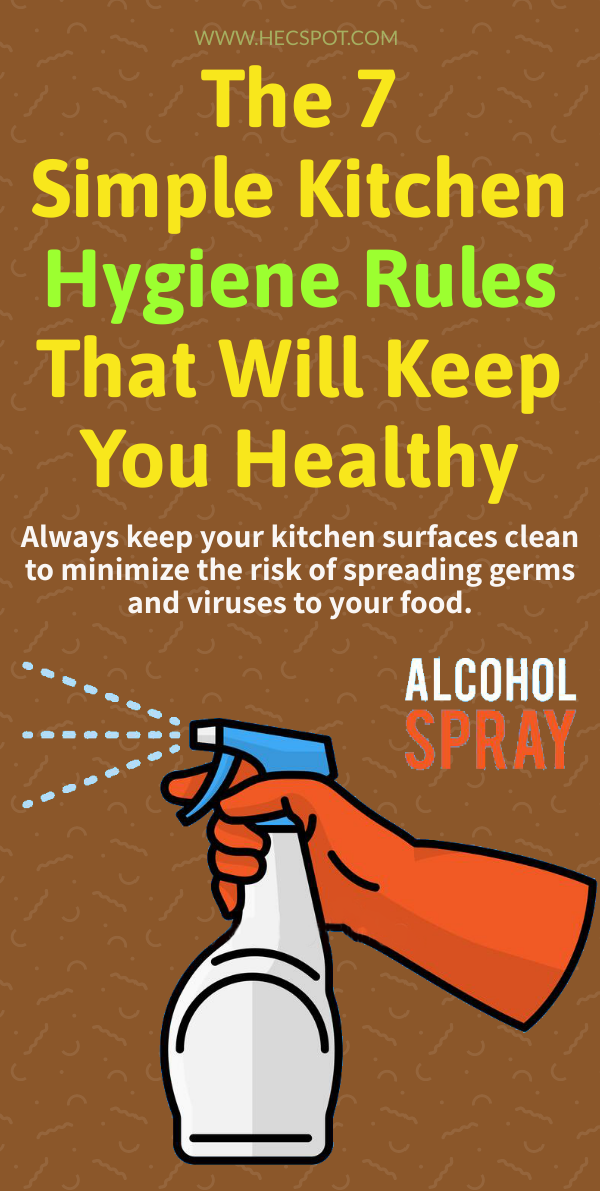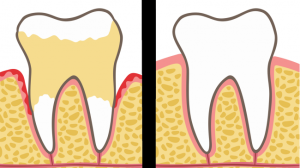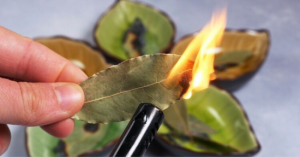Are you struggling to lose weight and maintain a healthy diet? You may have a toxic fatty acid that blocks weight loss.
Here's how a simple “Ice Hack” speed up my fat loss and helped me restore my health, watch now.
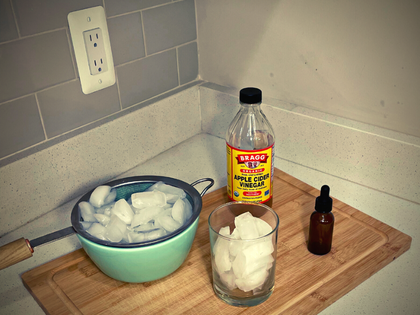
Cooking at home has many health advantages, it’s the place where you store your groceries and prepare your delicious meals. However, there are a few hygiene rules that you should know in order to keep your kitchen clean and safe.
In fact, proper hygiene is extremely crucial through food preparation. Since it’s impossible to recognize all the germs and bacteria by their appearance or taste in your food. Even the smallest amount of such bacteria can affect your health and lead to serious consequences.
Here are 7 simple rules to keep your kitchen clean and healthy:
- Wash your hands
Keeping hands clean is one of the most important actions. Experts claim that 25% of all food-borne viruses come from dirty hands. Therefore, you should always wash your hands with soap for at least 20 seconds. Before, during, and after preparing any food.
- Clean your counters
You should think about that next time you set a piece of bread or a cookie on the counter. Because kitchen counters are dirtier than you think. You put everything there, between grocery bags, crumbs, spills, cleaning products and so on. Bacteria and germs can easily spread to your food without you knowing it. Therefore, you should clean your kitchen counters once a week using detergent and hot water.
- Sanitize sponges and dishcloths
Sponges and dishcloths are the perfect host for rapidly growing bacteria. In order to disinfect them, make a solution using 1 quart of warm water and 1teaspoon of liquid chlorine bleach. Then, every few days soak the dishcloths and sponges for a few minutes in the solution.
- Sanitize cutting boards
Cutting boards absorb most of the juices from meats, which then lead to dangerous bacteria growth. Once a week, clean your cutting board with a mixture of 1 tbsp liquid chlorine bleach for every gallon of water. Pour the mixture on the cutting board, and let it absorb for 5 minutes. Afterward, rinse it with warm water.
- Clean fresh produce
Washing reduces the bacteria that may be present on fresh produce. Therefore, always clean your products immediately after bringing them home. Additionally, you can soak leafy greens in cold water or vinegar solution for a couple of minutes.
- Raw meat
Raw meat may transmit parasites and bacteria such as E. coli and Salmonella. Therefore, always make sure to separate seafood, raw meat, and poultry from your other products. The best way to thaw frozen meats is by leaving it in the fridge. Also, never defrost at room temperature on your kitchen counter. Lastly, don’t forget to wash your hands thoroughly after handling any raw meat.
- Clean your fridge
Your fridge can be breeding a deadly food-borne bacteria such as E. coli, Salmonella, and Listeria. You can clean your fridge using warm water and dishwashing liquid. Making a solution with 2 tbsp of baking soda and 1 quart of warm water works great, too.
To improve your kitchen hygiene you can also disinfect door handles, faucets, fridge door handle, and sinks using an anti-bacterial disinfectant spray.
Source: curejoy.com

